The American Immigration Lawyer’s Association (AILA) has released the following helpful information about the International Entrepreneur Parole Rule. This is a new option for foreign business people and investors to consider when looking for ways to immigrate and conduct business in the U.S.
In 2021, the Department of Homeland Security (DHS) relaunched the International Entrepreneur Rule (IER), allowing it to exercise its discretion to grant temporary entry to foreign nationals who will provide a “significant public benefit” to the United States based on their role as an entrepreneur of a recently formed start-up business.
Threshold Requirements
To qualify, the entrepreneur must:
- Own at least 10% of and maintain at least a five percent ownership interest in a start-up that has done some business and was created in the five years before application or receiving the qualifying investment or funding described below; and,
- Play an active role that is central to the operations of the business, applying the knowledge, skill or experience to support its growth.
3 Possible Standards to Prove “Significant Public Benefit”
The entrepreneur can prove the requisite “significant public benefit” by meeting one of the following three standards:
- Significant Capital Investment. The start-up has received capital investment of at least $250,000 in the past 18 months from one or more U.S. investors with an established record of successful investments. This requires that, during the past five years:
- Each investor must have invested at least $600,000 in start-ups and
- At least two of these recipient start-ups must have created five qualifying jobs for U.S. workers or generated $500,000 in annual revenue with a 20% growth rate.
The start-up can be a corporation, LLC, partnership, or other entity organized under federal or state law. Investments by the entrepreneur, immediate family, or entities owned by either do not count. Qualifying jobs are those located in the United States and held on a full-time basis by lawfully employed workers, excluding the entrepreneur, immediate family members and independent contractors;
- Government Funding. The start-up has received domestic federal, state or local government funding totaling at least $100,000 in economic development, R&D or job creation awards or grants (excluding contractual commitments for goods/services);
- Partial Capital Investment and/or Government Funding and Other Compelling Evidence. If the start-up received some but not all of the capital investment or government funding required under the above two standards, parole may be available based on other “compelling evidence” of substantial potential for rapid growth and job creation. For example, the entrepreneurs can show that they have a strong start-up track record, been accepted into a reputable accelerator, created new technologies, or produced cutting-edge research. Evidence of substantial potential may include letters from government agencies, investors, and business associations, press coverage, patents, educational credentials, or corporate financial records.
Parole Period and Requirements for Extension (“Re-Parole”)
A grant of IER parole allows the entrepreneur to enter and remain in the United States to work in the start-up for up 30 months (2.5 years). After this, an entrepreneur can apply for 30 more months of re-parole by showing that the start-up meets one of the following four criteria:
- Additional Funding. It has received $500,000 in additional capital investments and/or government funding
- Revenue. It has generated $500,000 annually at a 20% growth rate
- Job Creation. It has created at least five qualifying jobs
- Alternative Evidence. Entrepreneurs who only partially meet one or more of the other three criteria can still qualify by producing other compelling evidence of the start-up’s substantial potential for rapid growth and job creation.
Parole Eligibility for Family Members
The entrepreneur’s spouse and minor unmarried children must apply separately for parole by filing Form I-131, Application for Travel Document, which may be granted for the same period that was granted to the entrepreneur. Spouses may apply for work authorization as described below.
Other Important Considerations
Parole is Discretionary. DHS has the discretion to grant parole on a case-by-case basis, is not required to do so in any given instance, and can revoke it. Denial of parole is not appealable or subject to a motion to reopen or reconsider. Of key importance: the applicant and family members must merit a favorable exercise of discretion, which could be precluded by a record of criminal conduct, fraud, national security concerns, or other derogatory evidence.
Not a Green Card Pathway. IER parole does not lead to a green card and requires the entrepreneur to find a way to remain in the United States once parole expires.
Limited to Three per Start-Up. IER parole is limited to three entrepreneurs per start-up.
Maintenance of Income. A parolee under the IER must maintain household income of at least 400% above the poverty level (which currently amounts to $51,520 for a single person).
Find more IER resources at: https://www.uscis.gov/humanitarian/humanitarian-parole/ international-entrepreneur-parole
If you need more information on eligibility for IER, we encourage you to contact our office today to schedule a consultation with one of our experience immigration attorneys.

